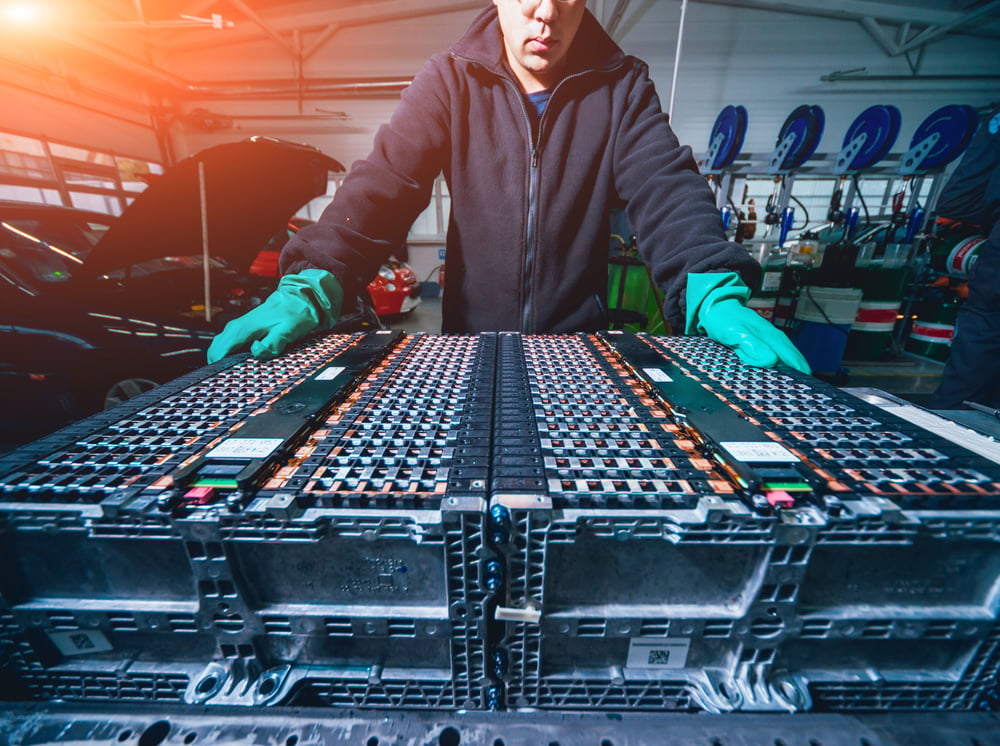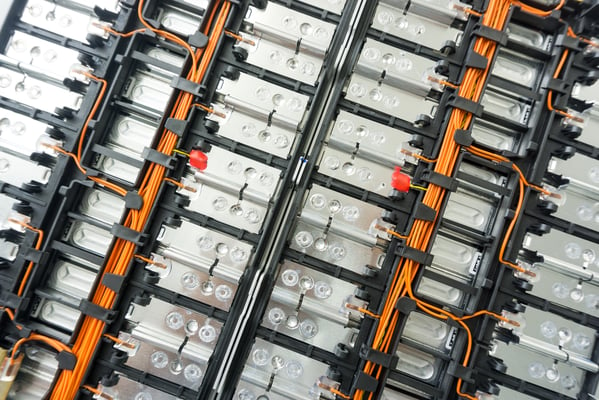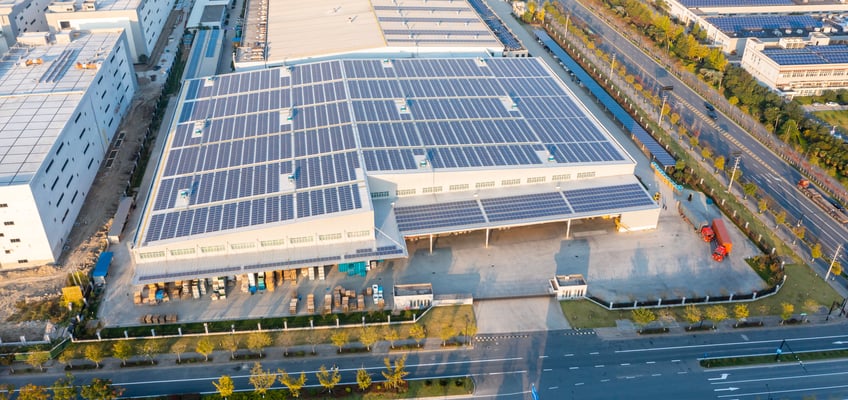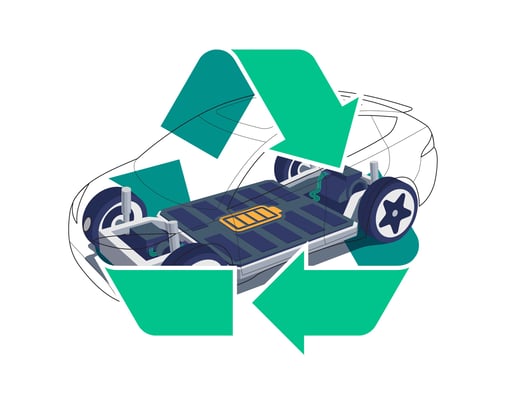
The second life of electric vehicle batteries
94% of all cars sold in the private market in Norway the first quarter of 2022, were electric vehicles. That means one in ten cars sold were ICE (internal combustion engine) cars.
At the same time, many older electric vehicles (EVs) are now coming to their end-of-life stage, where their batteries no longer has the necessary range to be efficient.
So far, batteries from EVs have been thrown away, as recycling has been a costly and meticulous process. But this is changing.
EV batteries - what makes them special?
EV batteries are high-energy propulsion units that are made differently from other kinds of batteries. They have a complex build, and can weigh several hundred kilos. These kinds of batteries are made to endure extreme conditions. They must be able to perform optimally under stress like aceleration, recouperation, fast charging, and also under different ranges of temperatures; minus degrees in winter, plusdegrees in summer. In addition there are stressfactors like vibration, moisture and external forces.
Inside, lithium is the main element driving the chemical reaction that makes it possible to charge and discharge the battery. Over time, chemical reactions that are unavoidable, will lead to a loss of capacity of the battery. When the loss reaches 30%, the battery is no longer suitable for use in the electric vehicle, and it has to be replaced.
Giving EV batteries a second life
At ECO STOR we give these batteries a second life. We work together with different EV manufacturers, Norsk Gjenvinning and Agder Energi to make this possible. Through our battery management system, we are able to diagnose the health of a battery coming from an EV. Batteries suitable for use, are repurposed for use in scalable battery energy storage solutions (BESS).
Because they have been made for extreme conditions, EV batteries are highly suitable for usage in stationary battery applications, and they have a long lifespan left as BESS after the end of their first life in EVs.
The batteries can be used as single units, or they can be coupled together in series, into large storage modules.
Fast frequency response and storage of energy
There is a growing demand for BESS, both to store energy from unstable renewable sources, and as fast frequency regulation (FFR) to stabilize the frequency of the power grid.
Already, many places in the world, FFR services in the form of BESS are a part of the power grid. The lack of inertia in wind- and solar power production makes fast frequency response necessary to stabilize the frequency (voltage) of the grid. battery modules have a response-time of miliseconds when dips in voltage is detected, and in a future where and ever-increasing part of the energy-mix comes from wind and solar power, the need for FFR is ever-growing.
In Norway, traditionally, there has not been any need for this kind of frequency control, as most of our energy has been produced by hydropowerfacilities. Making electricity from water involves huge, heavy turbines that are sychronized at 50 rpm, creating a frequency of 50 HZ in the powergrid. These turbines contribute with inertia, thus stabilizing the grid frequency.
However, the Norwegian grid is now a part of the European grid, and also, there is more and more powerproduction from wind and solar in Norway, thereby increasing the need for alternate frequency stabilization. BESS at the moment, is the best and most affordable technology for providing this.
Another function of BESS is, as the name suggests, storage of energy. This is important for energy security in the landscape of unstable, renewable energy sources. BESS enables storage of energy to be used when for instance the sun does not shine when the weather is cloudy, or at night, or when the wind does not blow.
Repurposing EV batteries as a part of the future of circular economy
In order to use our planets resources in the best possible way, we at ECO STOR believe that repurposing batteries, giving them a second life in stationary applications, is the only way we can move forward towards a more sustainable future.
Please don´t hesitate to contact us for more information.




